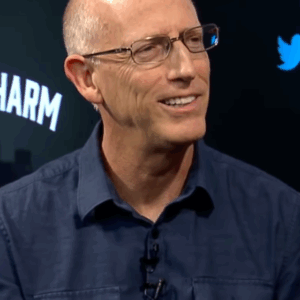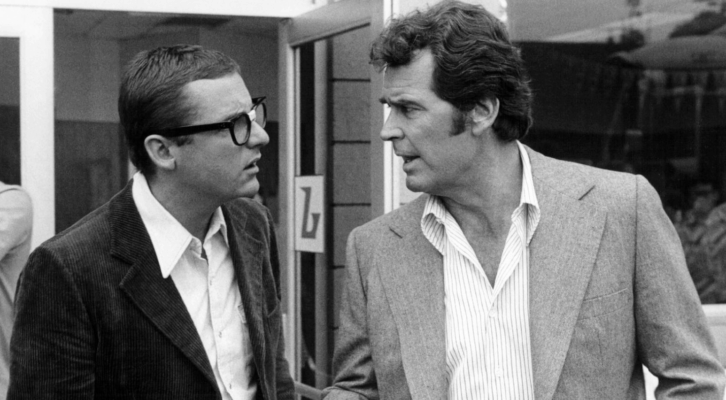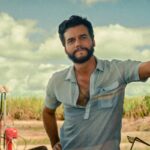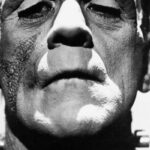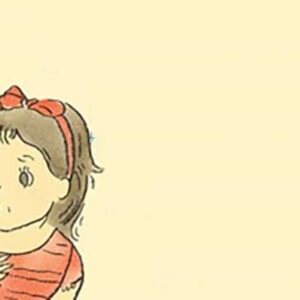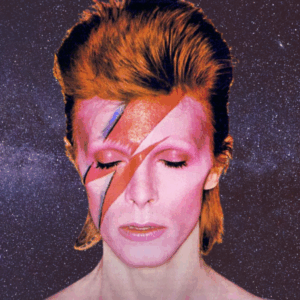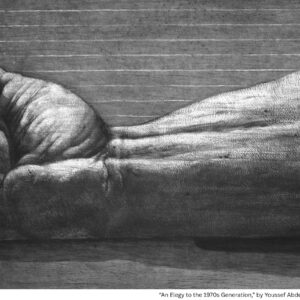
Eve Ewing on Education, Institutions, and Alternative Models of Poetry
"The Primary Audience of My Book is First and Foremost Black Teen Girls"
Eve Ewing is fighting the good fight on many fronts. A sociologist at the University of Chicago, she researches race and inequality in education, especially in Chicago public schools. She uses her Twitter fame to speak out on topics from white supremacy to waffles. With Nate Marshall, author of The Wild Hundreds, she runs community arts organization Crescendo Literary, whose latest project is No Blue Memories, a performance piece tribute to Gwendolyn Brooks. As if this weren’t enough, she just published her debut collection of poetry, Electric Arches, a fiercely imaginative celebration of black girlhood and the power of poetry to (re)create the past, the future, and a path for surviving the present. I talked with Eve about her new book, poetry-with-a-capital-P, and the essays she’s constantly rereading.
Rebecca Stoner: Tell me about your poetic education. How did you start reading and writing poetry?
Eve Ewing: My poetic education, such as it is, started in school. I used to read pretty much everything. When I got to high school, I became involved with Young Chicago Authors [a youth arts education offering writing workshops, open mics, and the nation’s largest youth poetry slam, Louder Than A Bomb]. YCA was a big influence on me in terms of actually learning about poetry and text. To a certain extent it was even more important in terms of teaching me what it meant to be a poet in the world. I came to understand that it meant, for me, that you could be someone who was very much grounded in your community, that part of being a poet meant mentoring others, collaborating with others, learning from other people, representing where you’re from.
In terms of a formal poetry education, I have a lot less of it than a lot of other people. I don’t have an MFA. I was an English major in college and I took mostly multi-genre black literature classes. I took one American poetry class that was incredibly alienating, in which, as far as I can recall, I was the only black person in the class—and there weren’t many black people on the syllabus either, or any people of color. I’ve always felt a little bit of a disconnect between what is reified by a certain traditional established literary set of institutions—what’s considered poetry and what it means to be a poet from that perspective—versus what I have understood and affirmed what it means to be a poet.
RS: Can you talk more about your relationship with classical poetry? I know in Electric Arches you have a sestina, a sonnet, and Requiem for Fifth Period explicitly references The Odyssey.
EE: My alienation from those kinds of institutions doesn’t mean that I’m alienated from canonical poetry. I have always been someone who enjoys reading widely. In college, I read Elizabeth Bishop and Robert Lowell and Sylvia Plath. But I also read a lot of Gwendolyn Brooks, a lot of Countee Cullen, and Jean Toomer, and it was through these black literature classes I was able to find poetry in school that meant something to me.
For the book, I did want to challenge myself to write in form, at least a little bit. It’s not something that’s my natural inclination, therefore I think it’s an important intellectual challenge. Even then, for me it’s a little bit different. The sestina—on the one hand, it’s a sestina, but on the other hand, it’s recounting the story of feeling very alienated as a black poet among other black poets, being in residency in a faraway town, and feeling separated from my self. Even the sonnet is playing with the form of the sonnet. It’s a love poem, just one line repeated 14 times, expressing love through this action of leaving somebody cornbread on the stove. To me that’s the embodiment of love and care. The fact that it’s after Terrance Hayes—it’s entering into conversation with a more contemporary black poet.
I don’t have any sort of animus towards traditional poetry institutions. Actually, I have been pleasantly surprised and delighted at this stage in my life that there can be a little bit of a thinner boundary between us. But I feel grateful that, when I was coming of age as a poet, that I had other models, because otherwise I probably wouldn’t have entered poetry at all.
RS: I wanted to ask you more about your formal education. You study educational inequality, and you seem to have lived the full spectrum of the experience. You attended Chicago public schools, a notoriously segregated and underfunded school system, but are now on track to become an assistant professor, with a Ph.D from Harvard. What have you learned from this journey?
EE: I think that those two institutions are not as antithetically opposed as you would expect. They’re different parts of the same system. From a very young age I started thinking critically about what school is for: why we have school and why it works, or doesn’t work, the way it does, and who it is intended to work for. I became very keenly aware within schools at a very young age. Since then I set myself on this pathway to try to understand it and see how I can make it a little bit different.
Within any educational institution, there are always going to be different strata. I know people of color who have gone to Harvard and had an incredibly alienating, terrible, useless experience, and there are lots of people who go to Chicago Public Schools, and, because the system is stratified the way it is, have a top-tier, elite experience. With respect, I think your question reflects some presumptions about what it’s actually like to be in those spaces. I really would push back against some of the presumptions about CPS, or Harvard, that go into a question like that. There’s a certain symbolism that each of those institutions holds in our society that I think only partially reflects reality.
Something that bothers me is that I was a CPS teacher. And when I was a teacher, I had many of the same skills and opinions and perspectives that I have now. But people became much more interested in listening to things I had to say once I had this affiliation with an Ivy League university. I say that to people all the time as a way of calling to the fore that perhaps I’m not so special, that there are lots of people who share my opinion and skills and perspective, but for the most part we as a society don’t make space to hear those ideas, and in fact they’re actively silenced and discouraged. Teachers are actively silenced and discouraged from voicing any kind of political opinion, even though the practice of teaching is inherently political.
“From a very young age I started thinking critically about what school is for: why we have school and why it works, or doesn’t work, the way it does, and who it is intended to work for.”
RS: I’m curious about what you’re saying about questions of identity and personhood within an institution. Would you feel comfortable talking about what it’s like for you to be a black professor at the University of Chicago, which has such a historically troubled relationship with the surrounding community?
EE: While I like my job and I’m grateful to have the opportunities to do the kind of work I love to do, I don’t expect the university to love me, I don’t expect the university to have my back, and I don’t expect the university to always have my best interests in mind, because it’s this massive institution that precedes me and exceeds me and is not really about me. I think a really critical mistake that’s easy to make when you’re in these institutions and you come from a marginalized position is to feel like “I’m here, I made it.” Major institutions dismiss people of color all the time when it no longer becomes convenient to have them. I’m very cynical about any institution’s ability to keep me at the forefront, or keep my personhood at the forefront if it ever comes down to protecting their broader interest. With that kind of practical cynicism in mind, it sort of frees me to do the work I’m there to do every day.
RS: Do you feel like there’s a special role for poetry within politics? Obviously, poetry isn’t going to be the thing that changes school funding or hires more teachers, but what can it do?
EE: I don’t think that’s true. I think poetry can play a role in both of those things. That’s a hard question for me to answer, because I don’t disaggregate my politics from my artistic practice. But I think that poetry helps people understand those issues in a way that’s different than how they normally would. I think that’s not just about poetry in particular—it’s also about narrative storytelling, about art, about testifying and witnessing. I think that the role of the arts more broadly is, as Toni Cade Bambara said, “to make the revolution irresistible.” I think that poetry plays a central role in that.
RS: I’m interested in what you say about not desegregating your politics from your artistic practice. This book is published by Haymarket, which is known for producing radical books. I also noticed they are proudly printed in Canada with union labor. Was it important to you to publish with your politics?
EE: Oh, absolutely. I would be publishing with my politics regardless, but I’m excited to have that be more explicitly part of the book because of the press. Haymarket helped me write the book I wanted to write and publish the book I wanted to publish, and the political element is definitely an aspect of that. It means that they’re more explicit in the way they talk about the book, the way they advertise the book, and the narrative around the book centers some of those political aspects, which to me are crucial to the narrative within the book.
RS: When you wrote this book, who was your imagined audience? The first image in your book is a black girl decoder ring. Based on that image, I wonder if you were trying to produce solidarity or understanding with your book.
EE: No, not especially. I think that whether other people choose to be in solidarity with people who have different identities—the onus of that is on those people. The primary audience of the book is first and foremost black teen girls or young adult women, and expanded from that young people of all backgrounds, black women of all ages, and I would see the audience blossoming out from that. It’s a book that people from all different backgrounds can and are clearly demonstrating they can read and love and understand and connect with, and that feels true to them. I do think it’s important to write with a very clear audience in mind. It’s one of those Writing 101 things that’s a truism because it’s true—having a clear audience in mind can make for a much richer and clearer set of images, especially in poetry.
The black girl decoder ring is supposed to be a tongue-in-cheek joke about how, on the one hand, I feel like our society is very dismissive and erasing of black women, but on the other hand has kind of an obsession with our clothes, our manner of speech, our habits, our social structures.
RS: I’m interested in how you use Twitter. You’re active in many different kinds of writing–how does Twitter play a role in that, and how does it all fit together?
EE: People sometimes say things like, every Tweet that you put out, that could be a sentence in your novel, or like every blog post, that could be an op-ed. While I understand that sentiment and work very deliberately to manage my writing energy in a given day, I think that’s a little silly, because for me Twitter plays such an important role to, number one, just communicate things in that format. For me, Twitter is a medium with its own inner value as a way of communicating ideas to a broad audience.
I’m not a person who is naturally driven towards concision, and I think that concision is an extremely important quality for a writer to have. Twitter helps me with that a lot. It provides a medium where I have to make very clear, concise arguments.
It’s also extremely helpful to be able to connect with so many writers and readers from all over the world. Especially a couple of years ago, it was really helpful to build the kind of audiences that then translated to the kind of writing opportunities I’ve gotten to have.
RS: What is your non-Twitter writing process like? How do you move between these different modes of being–if they are different modes of being–between Tweeting, being in a faculty meeting, writing poetry, and so on?
My writing process is that I try to have some kind of very specific targets and goals in mind at all times, and those are larger scale and smaller scale targets. Larger scale targets like: I need to complete this manuscript. Smaller scale targets like: tomorrow I need to write two poems, or I need to revise five pages of this academic paper.
I believe anything can be done if you break it up into chunks, if you go, as Anne Lamott once told us, “bird by bird.” I try to have a very clear vision of what I’m working towards, even in a way that facilitates the necessary messiness of writing. Sometimes that means I’m just going to jot down notes for a half hour, and if I don’t have any more ideas I’m going to stop. Having that framework allows me to go really hard within those specific targets and goals I set for myself. I use a lot of to-do lists, I use a lot of timers, I use a lot of motivational notes. I will sit down at my computer and write on a post-it, you must get to page 70 before you can take a break. and I’ll just put that in front of me. Things like that, they sound a little silly, but they work really well for me.
I also am very self-forgiving. At any one moment when I’m doing one thing, it means I’m not working on something else. It would be very easy to be obsessed with all the things I’m not doing at any given time. I think really hard about being forgiving to myself and not getting too caught up on what I can’t do at the moment.
“I believe anything can be done if you break it up into chunks.”
RS: Are you comfortable talking about what you’re working on right now? I’m really curious to hear about No Blue Memories.
What I’ve been working on obsessively all summer has been my second book, When The Bell Stops Ringing. It’s a nonfiction book, a sociology book about racism in school policy, specifically school closure in Chicago.
Right now I’m actually working on some other research projects. Because that kind of research takes so long, it’s something I’ll be working on, in little chunks, for the next year.
No Blue Memories—I’m really excited about that. Nate and I wrote that last summer. It’s a show about the life of Gwendolyn Brooks. It’s an extremely multi-genre, multi modal performance unlike anything I’ve ever done or seen. I think it’s going to be pretty crazy. The show is performed in shadow, and it’s performed simultaneously by live actors, as well as extremely ornate paper cut-out puppets interacting with each other. It also has a live musical performance component, which includes music created by Jamila Woods and Ayanna Woods. Performances are going to be free and open to the public in Chicago, and there’s one set of performances that’s exclusively for Chicago Public School students and teachers that will be on the South Side at Gwendolyn Brooks College Prep. The other set of performances is for everybody, and they’ll be held at the Harold Washington Library, a big free library downtown. We get to celebrate the poet who has had the biggest influence on us and the way we live our lives, and we get to celebrate and talk about her at a free show that’s open to our city, which is basically a dream come true.
RS: Can you talk more about the importance of collaboration to your work?
EE: Collaboration is really important to everything I do, for a number of reasons. Even those things that seem like I did them alone, there’s always been tremendous collaboration behind them. With Electric Arches, that reflects the work of Nate as my editor, and the people at the press who partnered with me to enact the vision of the book, and a collaboration with a visual artist to make the cover what it is. Collaboration helps hold me accountable to the kind of artist I want to be, because it facilitates constant stretching, constant pushing, constant trying new things, being inspired by other people. It’s also really helpful for my mental health, because I never feel like I’m alone. Making sure that someone has your back, not because of what you can produce from them but because of who you are and because they care about you is really important to me.
RS: What are you reading now? And what are you constantly re-reading?
EE: Right now I’m reading Hunger by Roxane Gay. I also have The Hate U Give. I picked it up a couple weeks ago but haven’t started it because I do most of my reading before I go to sleep, and I don’t want to read this book that has a lot of trauma in it right before I go to bed. I need to figure out what I’m going to do about that.
There are some essays that I constantly reread. One is “The Negro Artist and the Racial Mountain,” by Langston Hughes, which is about the burdens and the questions and the challenges and the joys of being a black artist. I also constantly reread “Poetry is Not a Luxury,” by Audre Lorde. I have that phrase tattooed on my arm.









